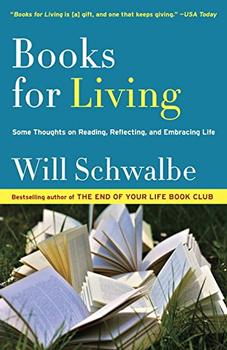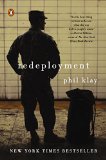Summary | Excerpt | Reading Guide | Reviews | Beyond the book | Read-Alikes | Genres & Themes | Author Bio

Reading Literature Through Peace and War at West Point
by Elizabeth D. SametWhat does literature - particularly the literature of war - mean to a student who is likely to encounter its reality? What is the best way to stir uninhibited classroom discussions in a setting that is designed to train students to follow orders, respect authority, and survive grueling physical and mental experiences? This is the terrain Samet traverses each semester, a challenge beautifully captured in Soldier's Heart. The excerpt ends with an extensive list of recommended books and films.
Elizabeth D. Samet and her students learned to romanticize the army "from the
stories of their fathers and from the movies." For Samet, it was the old World
War II movies she used to watch on TV, while her students grew up on Braveheart
and Saving Private Ryan. Unlike their teacher, however, these students, cadets
at the United States Military Academy at West Point, have decided to turn
make-believe into real life.
West Point is a world away from Yale, where Samet attended graduate school and
where nothing sufficiently prepared her for teaching literature to young men and
women who were training to fight a war. Intimate and poignant, Soldier's Heart
chronicles the various tensions inherent in that life as well as the ways in
which war has transformed Samet's relationship to literature. Fighting in Iraq,
Samet's former students share what books and movies mean to them—the poetry of
Wallace Stevens, the fiction of Virginia Woolf and J. M. Coetzee, the epics of
Homer, or the films of James Cagney. Their letters in turn prompt Samet to
wonder exactly what she owes to cadets in the classroom.
Samet arrived at West Point before September 11, 2001, and has seen the academy
change dramatically. In Soldier's Heart, she reads this transformation
through her own experiences and those of her students. Forcefully examining what
it means to be a civilian teaching literature at a military academy, Samet also
considers the role of women in the army, the dangerous tides of religious and
political zeal roiling the country, the uses of the call to patriotism, and the
cult of sacrifice she believes is currently paralyzing national debate.
Ultimately, Samet offers an honest and original reflection on the relationship
between art and life.
This is a powerful and introspective book that will appeal to many people in many different ways.
If you've always wondered what goes on behind the hallowed halls of a military academy, you'll like getting a glimpse into what the life of a cadet is.
If you have a loved one serving in the military, you'll read this with renewed interest and perhaps find yourself packing something extra in the boxes from home. You'll like the chapter "Books are Weapons".
If you are a teacher of English, or any subject for that matter, you'll appreciate the challenge Samat faces in making her content relevant.
If you are a history buff, you'll enjoy the references to our country's leaders in connection with West Point—Adams, Jefferson, George Washington, Sherman and Grant, to name a few.
If you are philosophical, you'll be given much to ponder with specific references to the works of Shakespeare, Aristotle, William Golding and Plutarch. As did one cadet, who was skeptical of the value of literature for a soldier until he came across the words "hope springs eternal" in Pope's "Essay on Man". From these three words he deduced that "perhaps hoping for the best even in the face of eternity is what sets humanity apart."..continued
Full Review
 (554 words)
(554 words)
(Reviewed by Vy Armour).
Taking Books Into Battle

If you liked Soldier's Heart, try these:

by Will Schwalbe
Published 2017
From the author of the best-selling and beloved The End of Your Life Book Club - a wonderfully engaging new book: both a celebration of reading in general and an impassioned recommendation of specific books that can help guide us through our daily lives.

by Phil Klay
Published 2015
Redeployment takes readers to the frontlines of the wars in Iraq and Afghanistan, asking us to understand what happened there, and what happened to the soldiers who returned.